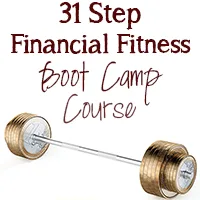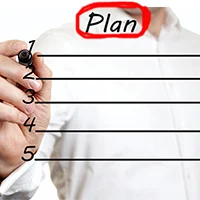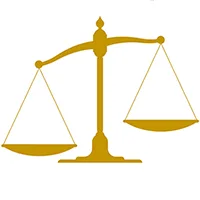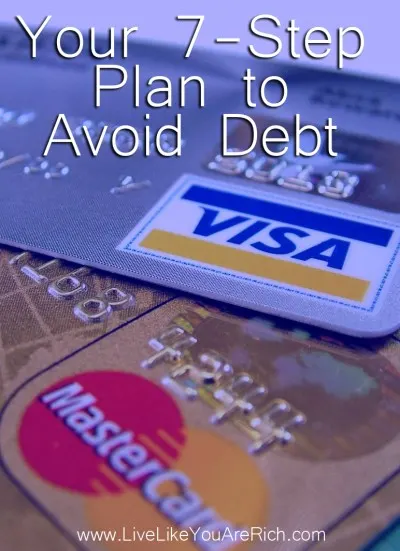People who make a lot of money, and I mean A LOT of money are not always financially rich. I once heard about a plastic surgeon that was very well known. He had a huge practice and specialized in a high-net-worth or celebrity clientele. He had a few mansions, a private jet, and a yacht. He called a friend of mine and asked for advice on how to declare bankruptcy.
My friend was shocked and asked him,” How does someone with a private jet, a mansion, and a yacht, and who makes millions need to declare bankruptcy?” He answered by explaining that he spends A LOT, buys big purchases, and never took the time to really look at the numbers. It was hard for the surgeon to fathom that making millions didn’t mean he could spend millions and still be rich.
IT IS NOT HOW MUCH YOU MAKE, IT IS HOW MUCH YOU KEEP.
When I first realized this – that rich people can overspend – I was surprised. I used to think that if I were to land an incredible paying job, have a successful business, marry a Dr., or win the lottery, I’d be set for life. NOT TRUE.
I was also shocked to realize the reverse was true as well; people who make a small income can save, invest, and become financially independent.
I know a few people who, on a little above average salary have paid off their home, cars, and other valuables and still have money set aside for retirement and emergency savings. Why? It is because they consistently spend less than they make.
I once spoke with an accountant who told me (without giving me any specific details) that many of his clients made A LOT of money each year. But, he continued, even though they look and act rich and they make A LOT of money, they are in the negative because they over spend their income.
He said, “You may think having a huge income ensures your wealth; it doesn’t. I go through credit card statement after credit card statement and I am consistently surprised that my clients can even find ways to spend so much money! They overspend what most consider a huge income.”
55% of Americans are spending right up to their income or overspending their income.*
Living a rich life (materially and non-materially) requires that you have financial peace of mind. Financial peace of mind cannot come when you don’t have enough to pay the bills and are consistently racking up debt. It comes through discipline. spending less than you make, getting out of debt, and setting excess money aside for security purposes.
Here is a 7 Step Plan to implement to ensure you aren’t sucked into the overspending debt game.
1. First off, you must have a plan to start saving. This is crucial because living from paycheck to paycheck is not a peaceful, or wise, way to live. Unforeseen expenses will always come up. Having savings will give you peace of mind, as well as help, keep you out of debt. One great way to do this is as soon as you are paid, set aside a certain amount (say 10%) in a savings account that is only used for emergencies. It is helpful to put the money in a separate account that you don’t even see so you won’t be tempted to spend it. If you will do this one step each time you get paid you will be amazed at how fast your savings will grow. Then if the unforeseen emergency does occur you will have something to fall back on instead of having to go into debt. If you don’t have to spend it, all the better. You are continuously building a savings/investment fund for future retirement.
2. Next, take the last few months of credit card statements, bills, checking accounts, etc. and see where you have been spending and whether you have over spent, under spent, or come out even, and by HOW MUCH. This number may shock you, but it is important to know in terms of numbers how much you overspend (go into debt each month) or, if you are the 45%, how much you have saved.
3. Next write down all of your fixed expenses/bills (insurance, mortgage, car payment, etc.). Then subtract them from the amount you have left after you have set a little aside in a savings account.
4. Allot the remainder of your money to the variable expenses, most important to least important, such as food(necessary), utilities, clothes, gifts, entertainment, food (eating out).
5. Track each category using a phone, check book, or something that you will always have on you and sync it up with your spouse (if applicable). Stop spending when you get close to the overspending point.
6. Repeat each month. Repeat each year.
7. When/if you become less diligent as time goes on, recommit yourself to not overspend.
Bonus Tip 8- Subscribe to my blog. I have a full schedule of money-saving and financial tips.
If you find that you do not make enough income to account for the necessities and fixed bills you are in a tough position. You need to do some or all of the following:
- Eliminate expenses (We cut our cable and a few other extras to free up an extra $225 a month).
- Sell (If you can’t make the car payment, sell the car before you default and buy a very inexpensive used clunker or carpool, use public transportation, etc. until you have enough saved to buy another one).
- Reconsider your loans– Do you have a 15 year loan on your mortgage or a super short car loan? You may need to refinance these to longer loans. (Even a 30 year loan can be lengthened).
- Earn more– Ask for a raise, start up a side business, or get another job.
- Consolidate– If you have multiple loans it may really save you in interest and free up cash flow by consolidating.
No matter your income or situation in life (whether you make millions, hundreds of thousands or thousands on an annual basis) it is good to realize that: It is not how much you make, it is how much you keep.
Make NOW your time to get out of debt, pay off loans, and start on the journey towards a truly rich life.
Just as the first step in stopping a sinking boat is to plug the hole where the water is leaking in, the first way to get out of debt is to avoid adding more to it.
Implement these 7 steps and then move on to the 5 steps: HOW TO GET OUT OF DEBT
Other articles that may be of interest to you:
Take my 31 Day Financial Fitness Boot Camp Course (click here)
5 Step Plan to Get Out of Debt
The difference between good and bad debt
For more ‘living rich’ and financial tips please subscribe, like me on Facebook, and follow me on Pinterest, and Instagram.
P.S. By the way… the wealthy plastic surgeon was able to start tracking and taking control of his finances, sold off some items, and did not have to declare bankruptcy.
What have you done to prevent overspending?









lovine achieng
Saturday 23rd of January 2016
this is a nice forum, has changed my way of thinking
Anita Fowler
Monday 25th of January 2016
I'm glad you enjoyed the article and that it has helped you!
sharmeka white
Sunday 17th of August 2014
Thank you. I feel great about starting this plan. My husband and I are considering bankruptcy at this moment but whatever we decide we will be implementing your plan. Thank you again for the inspiration. Sharmeka.
Anita Fowler
Monday 18th of August 2014
Your welcome. Bankruptcy can majorly hurt your credit for up to 10 years. Here is a post on how to improve your credit score. It may be something you'd be interested in reading as well.
Gordon
Thursday 24th of April 2014
One issue with Mint.com and other sites like it is that you have to give them your banking and credit card passwords. If your credit card gets compromised or your identity stolen, the credit card companies are within their rights to NOT cover your losses as you willingly shared your passwords with a third party. So weigh the convenience against the risk.
Anita Fowler
Monday 28th of April 2014
Gordon- Thanks for this info. I never put my account numbers anywhere that is not absolutely necessary, so yes, Mint.com would be a no go for me. As mobile as I am I think the ultimate thing is excel spreadsheets and paper and pen. The apps I've tried (that don't require you to share your bank info) aren't user friendly enough. Thanks for your input again.
Danielle Martin
Friday 7th of March 2014
I've also heard good things about Mint, but I've never used it. We do Quicken, which works great for us. My favorite part is the monthly overview. You can see which categories you have spent in and how much. It also keeps track of averages, so it'll give me these little warnings "you've spent $100 on recreation this month, you usually spend $50" or something like that.
I have a question for you.. what's your opinion about credit cards? I'm reading that book that lots of people recommend.. the Dave Ramsey one. It suggests getting rid of credit cards all together. We have credit cards, but we haven't paid a cent of interest on them. We pay off whatever we spend the same day we spend it. We figure we're "building credit," but is that really necessary? We also like the rewards points. Six months after our wedding we went on a honeymoon cruise that was 100% paid for by credit card rewards points. However, it does seem "safer" to have no credit cards, that way you can never get in debt trouble. What's your opinion?
Anita Fowler
Saturday 8th of March 2014
Dani- This is such a great question, I answered it with an entire blog post. You can read about credit cards and when you need them and when to absolute not have them. CLICK HERE
Andrea
Wednesday 12th of February 2014
Have you tried Mint.com? I have been using it for the last couple months and it works pretty well. You can set up budgets, alerts, payment reminders, etc. There is an app for your phone too.